Since we have moved to our new room, we have been able to use the space for a totally new project called “Open Lab Starter Kit”.
Managed by Fab City Hamburg e.V., the goal is to develop and produce open source hardware machinery instead of proprietary machinery. As the Bill of Materials (BOM), CAD models and build instructions are available, it will allow any Makerspace to equip itself, by fabricating its own machines.
This concerns the most commons tools used in a Makerspace: 3D Printer, CNC milling Machine, Laser Cutter, etc… More details can be found directly on the Fab City Hamburg e.V. website.
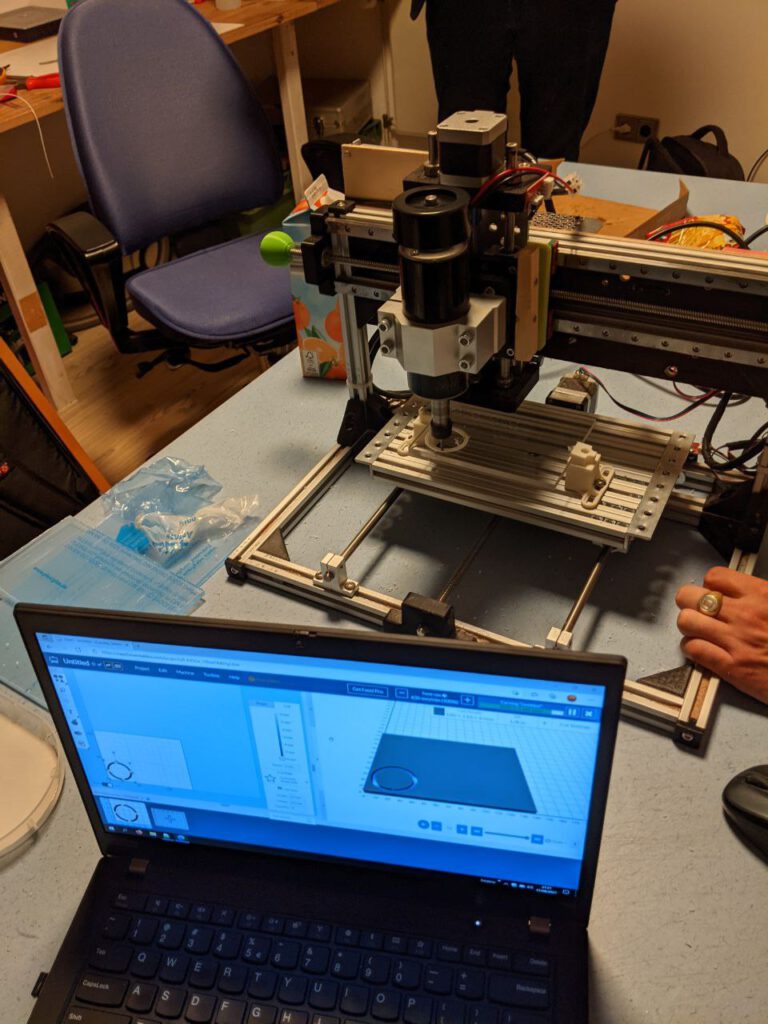

In this sense, Mo has been using the space offered in HoFaLab to develop in the last months an Open Source 3D printer. Starting from another famous design available on Thingiverse, he has optimized the model in an iterative Trial & Error process.
Now that the model is mature enough, he is organizing with Werner, so-called “Train-the-Trainer” workshops for local institutions in Hamburg, where participants learn how to build the 3D printer themselves.
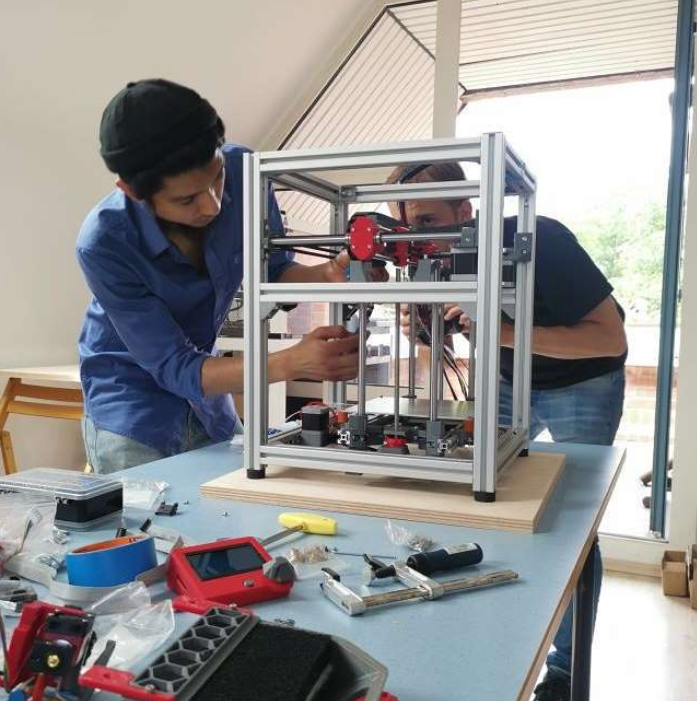
In parallel, we have been able to build our own model of the desktop CNC milling machine which is also part of the “Open Lab Starter Kit”. As it is open source, all information related to development and construction are available online. Additionally a lot of parts of the kit need to be 3D printed, which is of course no problem, as all CAD files are at hand. We still need to gather some experience on how to tune our new machine, but we have already been able to makes some promising tests.
Our next step would naturally to build the missing machinery to our Fab Lab: a Laser Cutter. This is planned mid-November in frame of another Fab City Hamburg e.V. workshop. So stay tuned 🙂
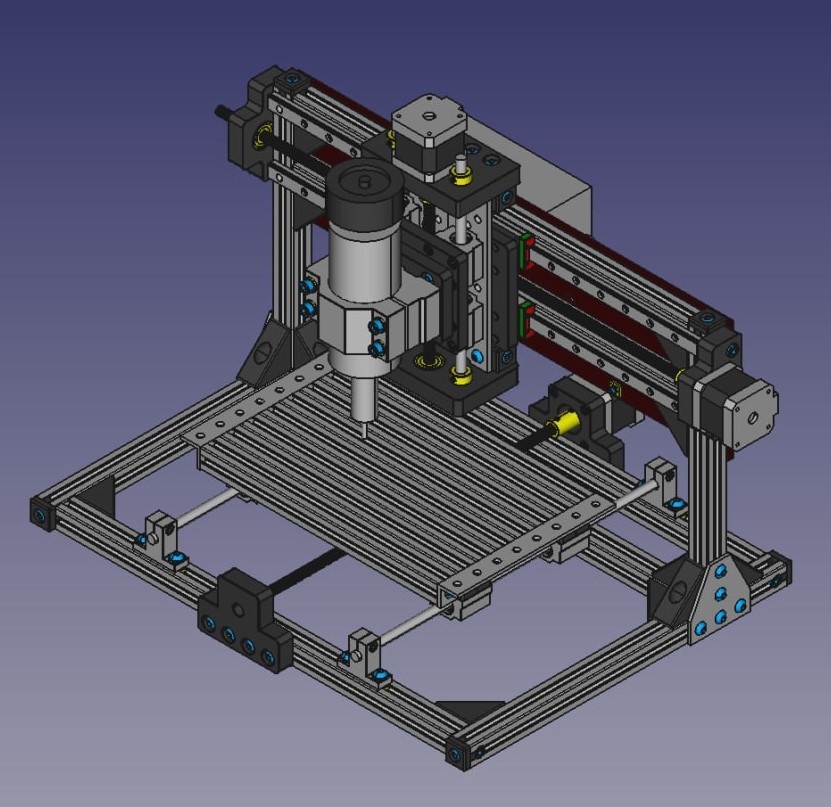
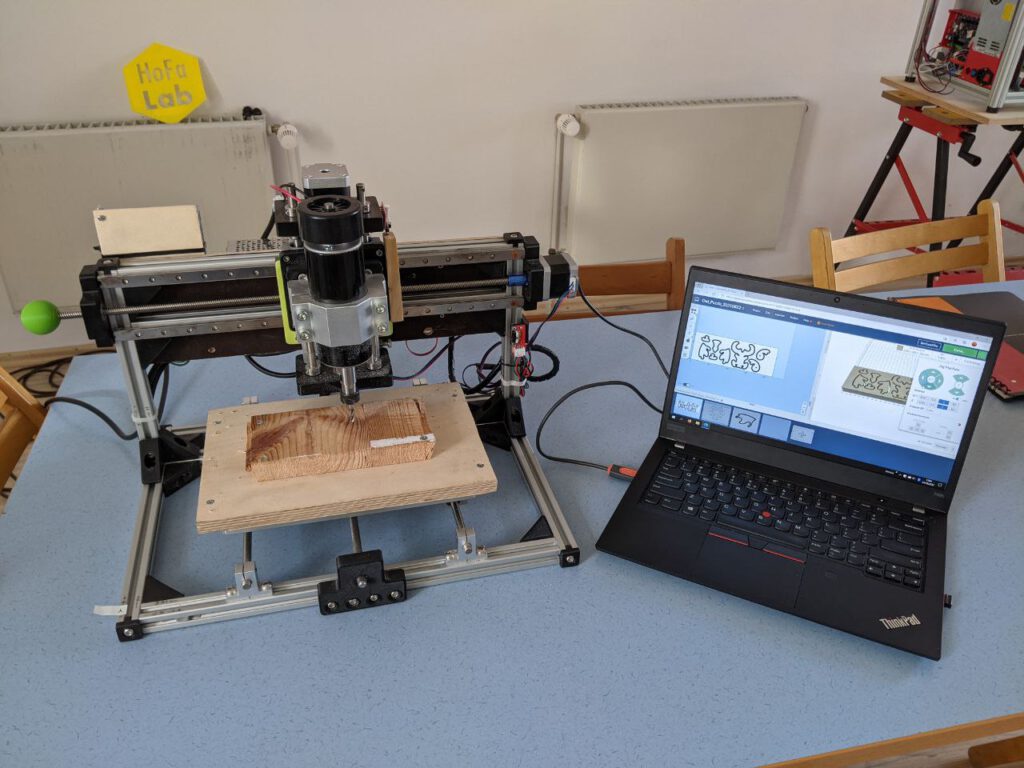
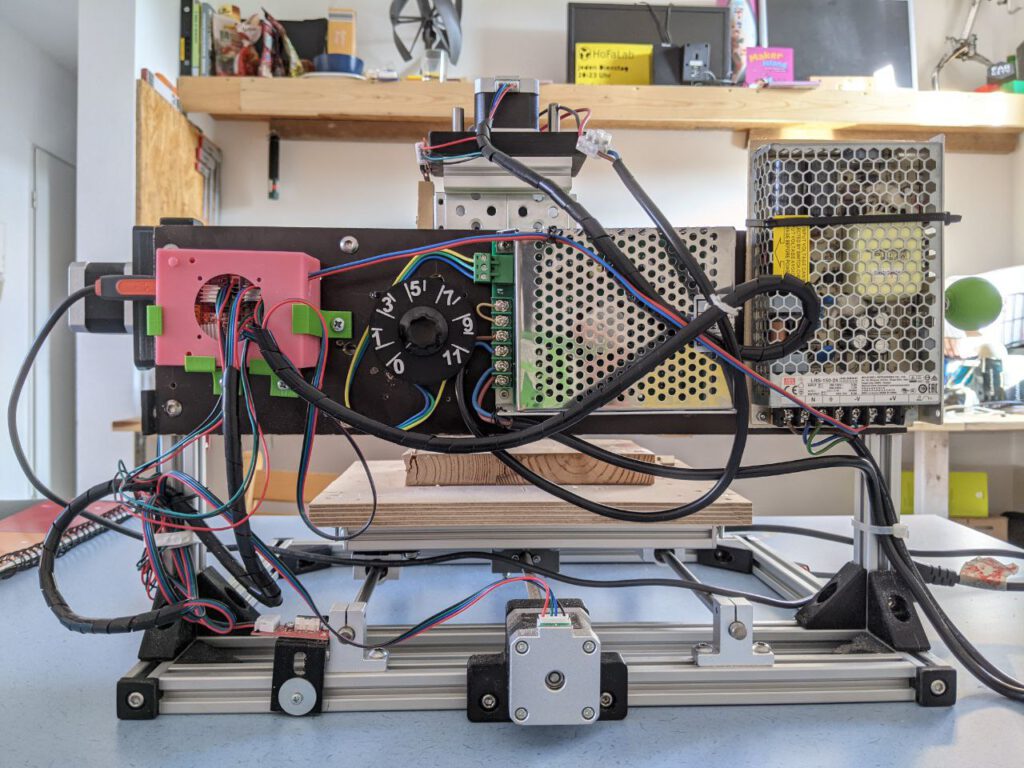
Another project, where HoFaLab absolutely wanted to participate, is the Code Week Hamburg 2021.
Code Week invites children, teenagers and adults to discover their enthusiasm for tinkering, hacking and programming. Every year, it offers the chance to look behind the scenes of the digital world: in workshops, anyone interested can try out the playful and critical use of hardware and software and discover how much fun, creativity and teamwork there is in programming.
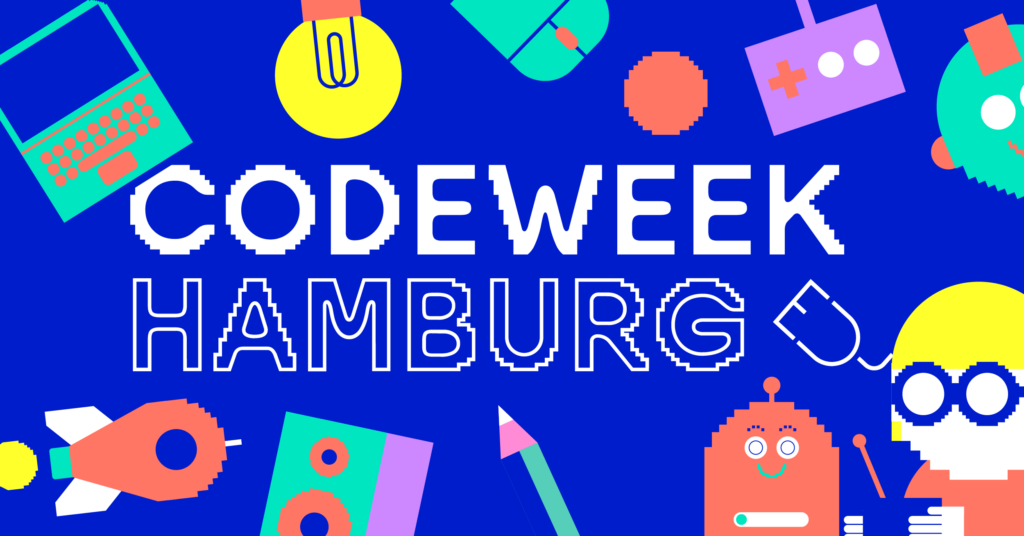
We jumped on the occasion, offering three workshops in one weekend end of October. The two first ones were “classic” ones: Processing and 3D Printing.
Piet gave a session regarding Processing, which is a programming language built for the electronic arts, and visual design communities with the purpose of teaching non-programmers the fundamentals of computer programming in a visual context. Meanwhile, Thierry conducted the 3D modeling and 3D printing workshop, providing a few examples of what can be produced with a 3D printer.

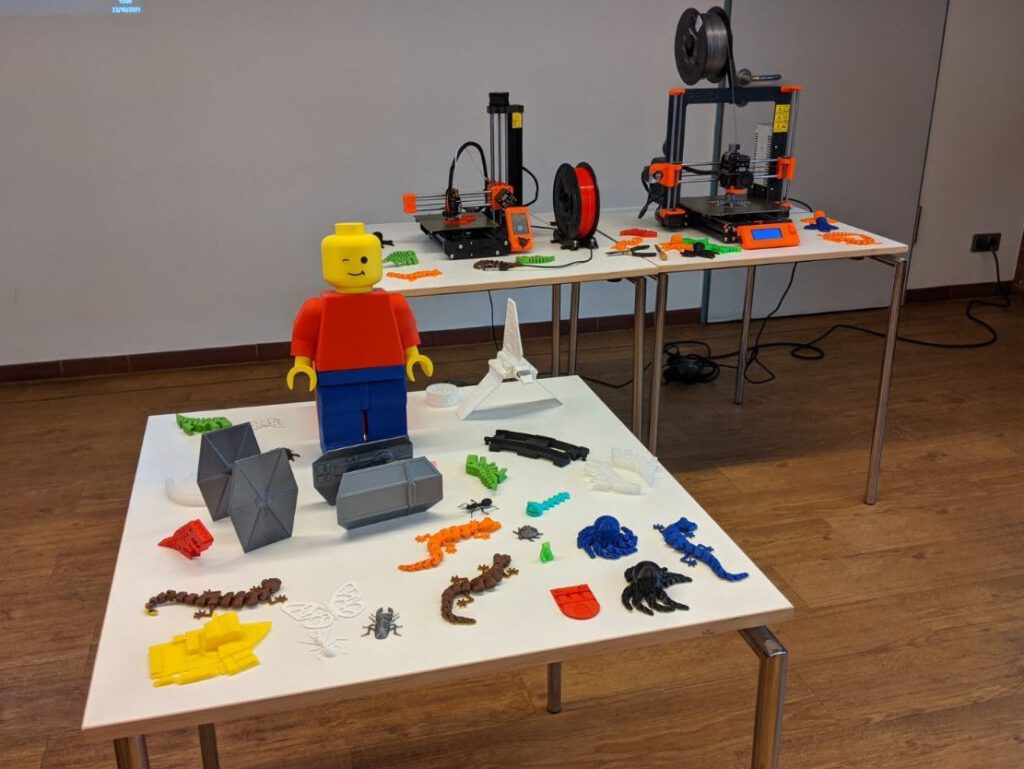

Additionally, Andre gave a brand new exciting workshop called “Open Bike Sensor and sustainable mobility”. With the Open Bike Sensor installed on the frame of any bike, you can measure how short the distances are to cars overtaking on open streets.
In our workshop, we tried out the sensor together, and then disassembled the sensor to look at all the details. We analyzed the measurement data from the sensor on an interactive map to see what can be learned from the data gathered.
We also used the chance to have an open discussion: why is there no room to cycle in some places? Who is take the space instead? And what could be done to give the bike more space? Where are there actually bike paths in Hamburg, and where not? What could a city look like in which more space is used for bicycle and pedestrian traffic than for cars?

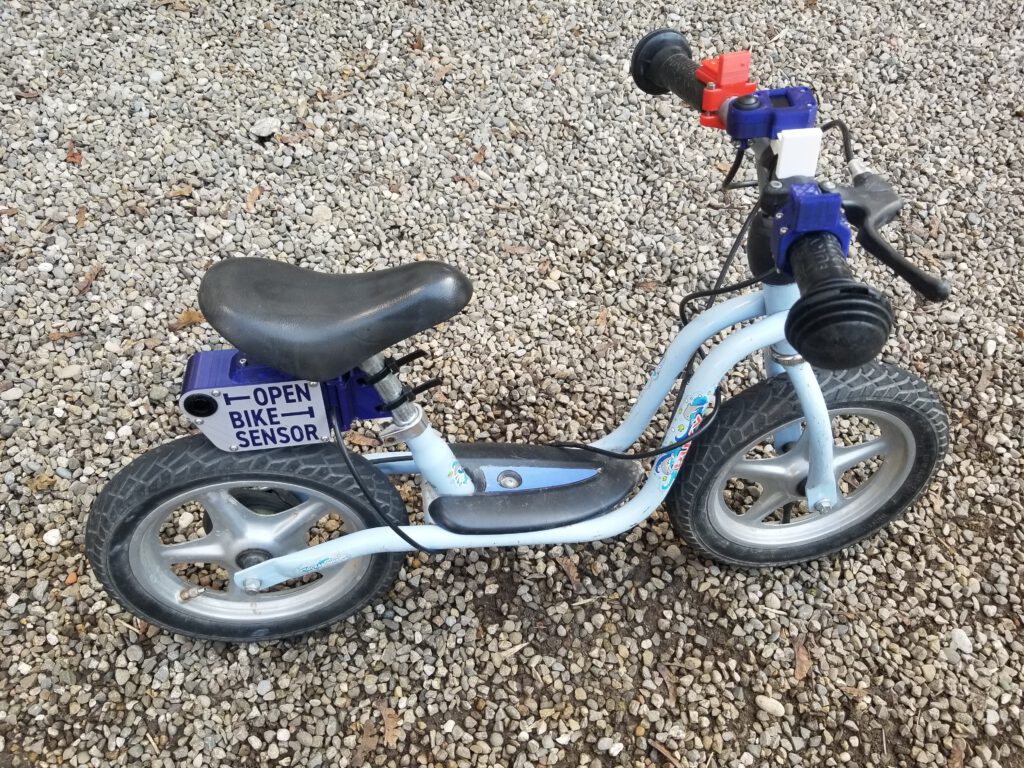
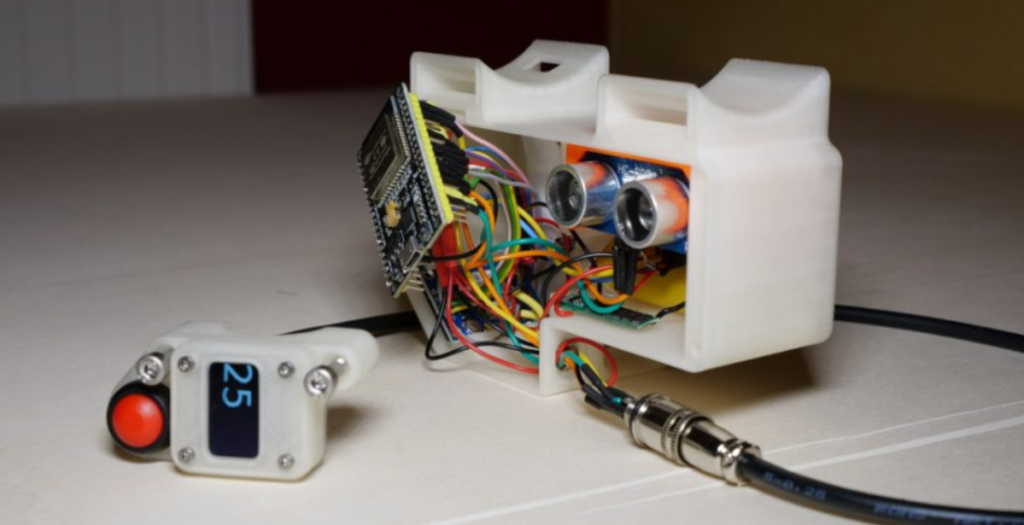
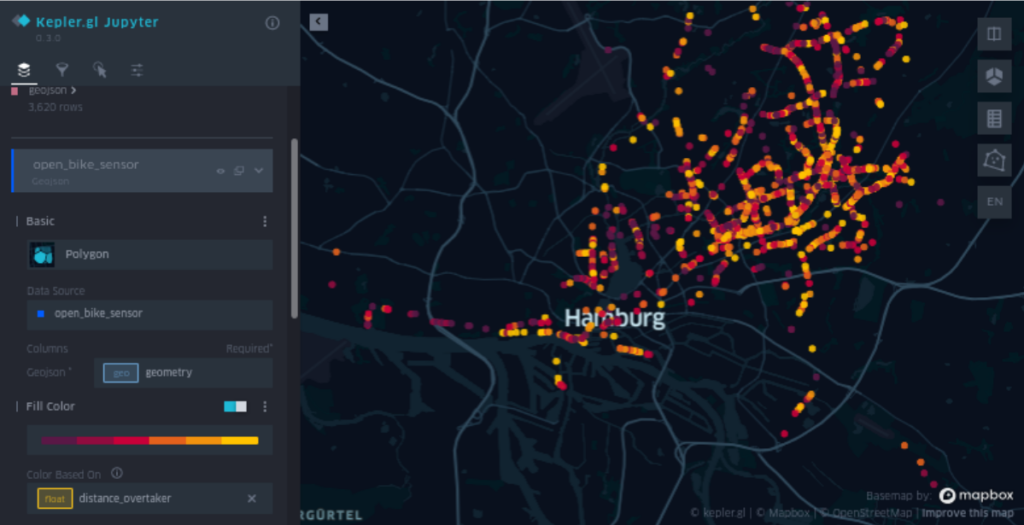
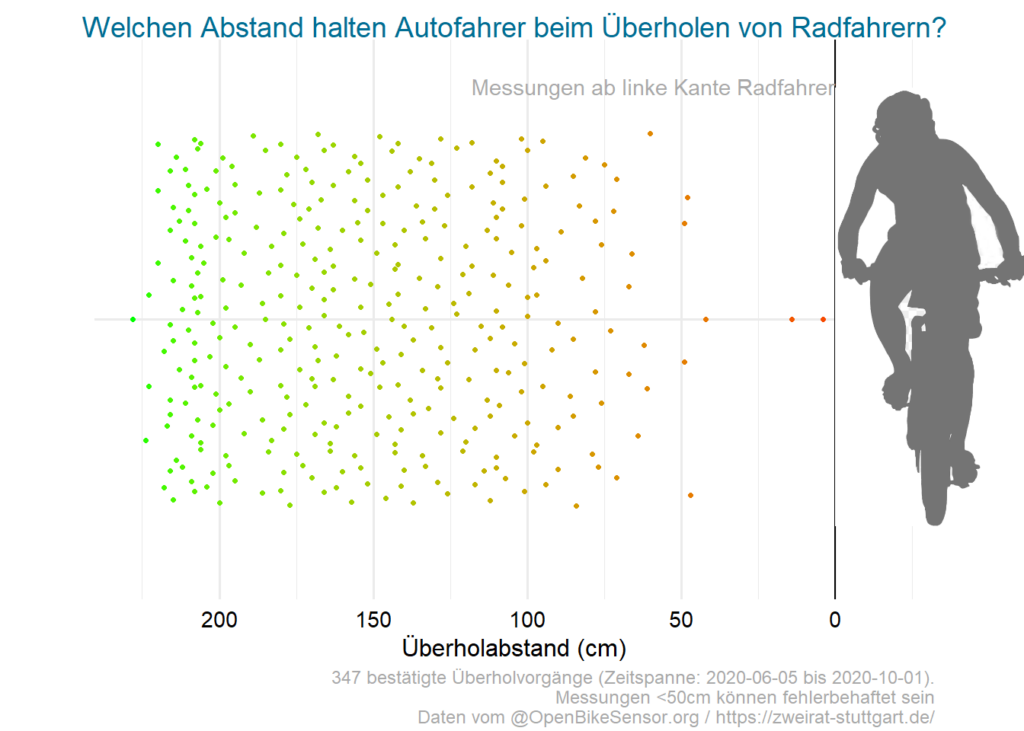
We will for sure be participating again next year to the Code Week… so you will have the chance to be present 🙂
